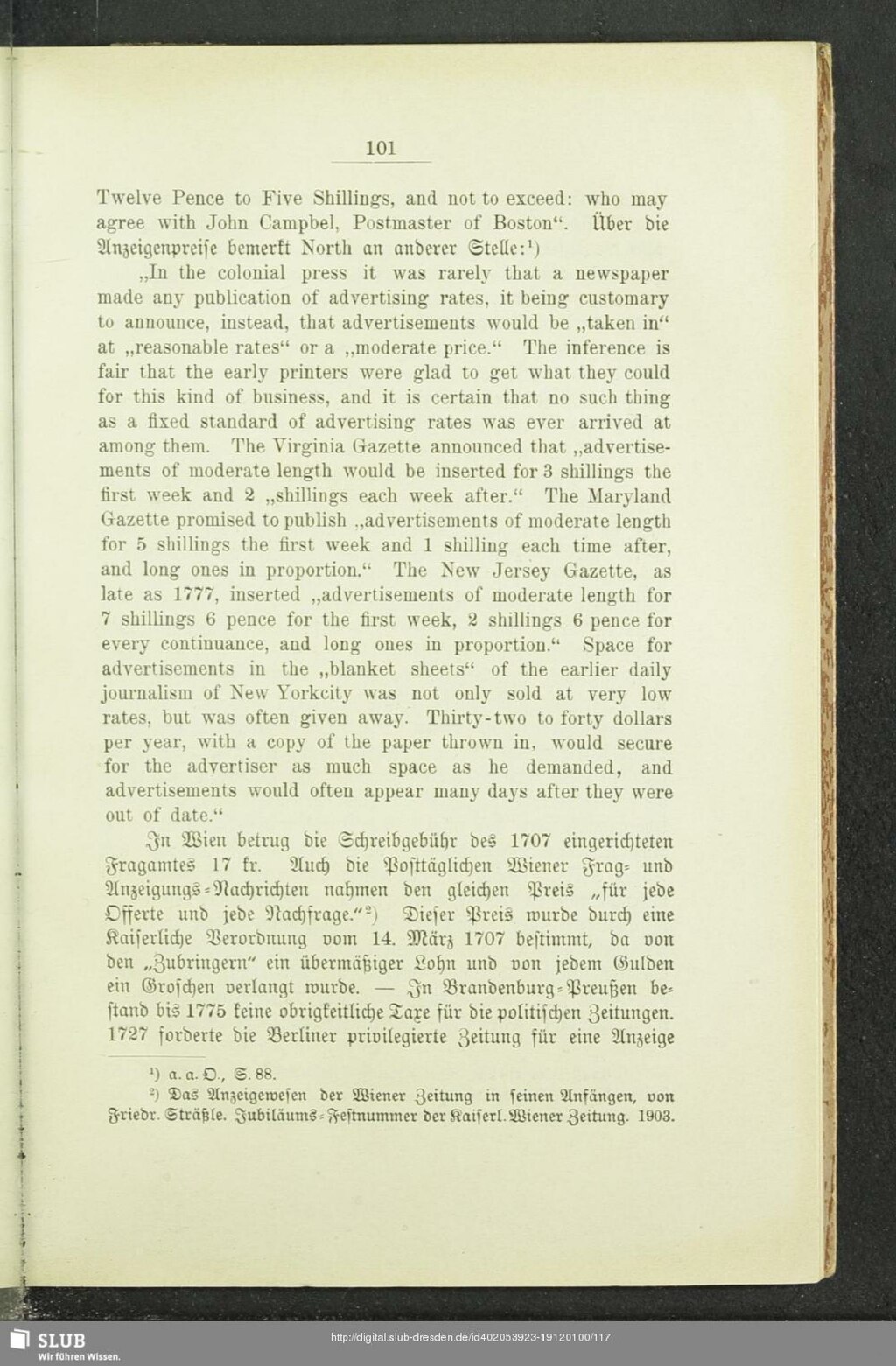Twelve Pence to Five Shillings, and not to exceed: who may agree with John Campbel, Postmaster of Boston“. Über die Anzeigenpreise bemerkt North an anderer Stelle:[1]
„In the colonial press it was rarely that a newspaper made any publication of advertising rates, it being customary to announce, instead, that advertisements would be „taken in“ at „reasonable rates“ or a „moderate price.“ The inference is fair that the early printers were glad to get what they could for this kind of business, and it is certain that no such thing as a fixed standard of advertising rates was ever arrived at among them. The Virginia Gazette announced that „advertisements of moderate length would be inserted for 3 shillings the first week and 2 shillings each week after.“ The Maryland Gazette promised to publish „advertisements of moderate length for 5 shillings the first week and 1 shilling each time after, and long ones in proportion.“ The New Jersey Gazette, as late as 1777, inserted „advertisements of moderate length for 7 shillings 6 pence for the first week, 2 shillings 6 pence for every continuance, and long ones in proportion.“ Space for advertisements in the „blanket sheets“ of the earlier daily journalism of New Yorkcity was not only sold at very low rates, but was often given away. Thirty-two to forty dollars per year, with a copy of the paper thrown in, would secure for the advertiser as much space as he demanded, and advertisements would often appear many days after they were out of date.“
In Wien betrug die Schreibgebühr des 1707 eingerichteten Fragamtes 17 kr. Auch die Posttäglichen Wiener Frag- und Anzeigungs-Nachrichten nahmen den gleichen Preis „für jede Offerte und jede Nachfrage.“[2] Dieser Preis wurde durch eine Kaiserliche Verordnung vom 14. März 1707 bestimmt, da von den „Zubringern“ ein übermäßiger Lohn und von jedem Gulden ein Groschen verlangt wurde. – In Brandenburg-Preußen bestand bis 1775 keine obrigkeitliche Taxe für die politischen Zeitungen. 1727 forderte die Berliner privilegierte Zeitung für eine Anzeige
Walter Schöne: Die Anfänge des Dresdner Zeitungswesens im 18. Jahrhundert. i. A. des Verein für Geschichte Dresdens, Dresden 1912, Seite 101. Digitale Volltext-Ausgabe bei Wikisource, URL: https://de.wikisource.org/w/index.php?title=Seite:Heft23VereinGeschichteDresden1912.pdf/117&oldid=- (Version vom 8.2.2024)
